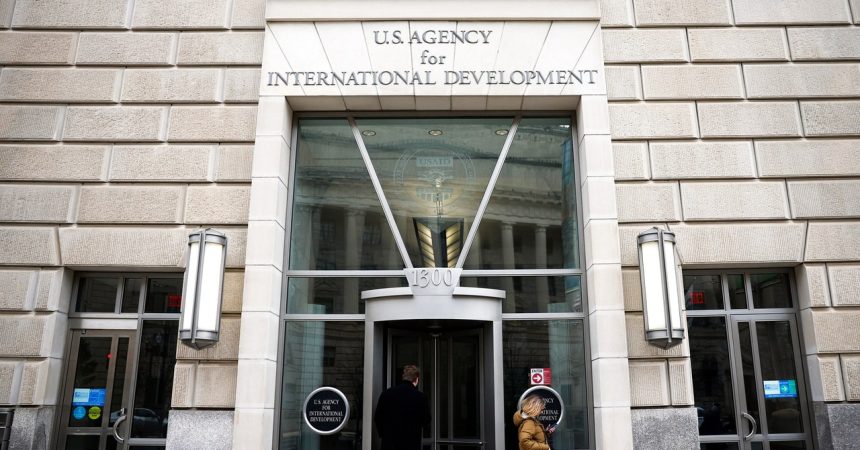The United States Agency for International Development (USAID), a cornerstone of American foreign policy and humanitarian efforts, is facing an unprecedented crisis under the new Trump administration. An abrupt and chaotic recall of the agency’s overseas staff has left thousands of employees stranded in various countries, raising serious concerns about their safety and wellbeing. This drastic measure is coupled with internal disruptions, including the sudden termination of email and system access for many employees, both domestically and abroad, creating confusion and hindering access to crucial information. This internal turmoil comes amidst a broader push by the administration to drastically curtail foreign aid spending and disengage from international commitments.
The recall order, reportedly issued by Pete Marocco, the newly appointed foreign assistance director overseeing USAID, mandates the return of all overseas employees to the United States. The directive, communicated to senior State Department officials, reportedly includes the potential use of military support to facilitate the evacuation if necessary. This sudden and sweeping action has sent shockwaves through the agency, leaving employees scrambling for information and fearing for their livelihoods and the future of their work. The lack of clear communication and support from agency leadership has further exacerbated the anxiety and uncertainty surrounding the situation.
The recall order follows a series of actions by the Trump administration targeting foreign aid. Shortly after taking office, President Trump froze all US foreign aid, later clarifying that programs performing lifesaving work could continue under humanitarian waivers. However, the implementation of this waiver process has been plagued by confusion and bureaucratic hurdles, effectively hindering the delivery of crucial aid to vulnerable populations worldwide. This disruption has impacted a range of vital programs, including HIV and AIDS prevention efforts, further highlighting the human cost of these policy changes.
Adding to the turmoil, the closure of USAID’s Washington, D.C. headquarters for the remainder of the week and the placement of some employees on administrative leave have added to the sense of upheaval within the agency. These actions, coupled with the lack of official response from USAID and the State Department to requests for comment, underscore the opacity surrounding the situation and fuel speculation about the agency’s future. The lack of transparency and communication from leadership has left employees in the dark, exacerbating their anxieties and hindering their ability to plan for the future.
The dismantling of USAID appears to be part of a broader “America First” agenda pursued by the Trump administration, characterized by a retreat from international engagement and a skepticism towards multilateral institutions. This approach has manifested in various actions, including the withdrawal from the UN Human Rights Council. The targeting of USAID, an agency dedicated to providing humanitarian assistance and promoting development worldwide, aligns with this broader trend of disengagement and raises serious concerns about the future of American foreign policy and the country’s role in global affairs.
The potential consequences of these actions are far-reaching. USAID employs roughly 10,000 people, with two-thirds stationed overseas, managing programs in over 60 countries. These programs provide vital support in areas such as healthcare, education, and economic development, and their disruption could have devastating consequences for vulnerable populations worldwide. The top recipients of USAID assistance in 2023 included countries facing significant humanitarian crises, such as Ukraine, Ethiopia, Yemen, and Afghanistan. The sudden withdrawal of American aid and expertise could exacerbate these crises and further destabilize already fragile regions. Moreover, the dismantling of USAID could damage America’s reputation and influence on the global stage, undermining its ability to promote its values and interests abroad. The long-term implications of these decisions remain to be seen, but the immediate impact on USAID employees and the beneficiaries of its programs is already being felt.



